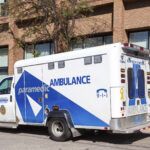Addiction has been a highly debated issue in the medical and behavioral health fields for many decades. Why do some people struggle with dependance on substances and others do not? Why do many people recover from addiction, while some battle with dependance issues their whole lives? While there have been significant improvements in our general understanding of the nature of addiction, there’s still much we don’t know about how people recover, why they recover, and the critical elements necessary to abstain from drugs and alcohol successfully.
One breakthrough has been taking a relational approach to recovery. A strong support system has been present for many of those who successfully recover. We will examine why using a relational approach to recover from addiction can greatly aid recovery and how to increase the relational approach for those working through active addiction.
Isolation and Addiction
Addiction can be a lonely disease. While some may start using drugs and alcohol to connect and fit in, through peer pressure, and/or the influence of friends and family, it often progresses to secretive self-medication in isolation.
Let’s revisit some of the most contributing factors to substance use turning against people and becoming problematic dependance:
- Mental health – The great stigma surrounding anything to do with mental health stops people from feeling like they can talk with others about their depression, anxiety, mood disorders, or whatever else might be troubling someone, so they turn to drugs and alcohol to cope.
- Difficulties enduring life’s stressors – The pressure to succeed and cope with life is often a trigger for those who become addicted. Workers and students might use chemicals to cope with their workload pressures, for example, or to decompress from a demanding workday.
- Managing chronic pain – Often, those experiencing chronic, debilitating pain don’t want to burden others with their problems, so they medicate (and over-medicate) to manage the symptoms.
- Trauma – Many people who experience some kind of trauma will struggle with substance abuse at some point to manage the nightmares, memories, and anxiety associated with post-traumatic stress disorder (PTSD). Many others might not receive a formal PTSD diagnosis, but that doesn’t mean it hurts any less or doesn’t cause significant problems in one’s life. Trauma often comes with debilitating shame, guilt, and other isolating emotions. People with a history of trauma often think others won’t understand or relate to their experiences, so they bottle them up and use substances to distract themselves and numb their emotions.
What is a “Relational Approach” in Recovery?
A “relational approach” to addiction is a clinical term for building connections to support recovery and heal relational trauma. Since addiction thrives in isolation, a relational approach aims to combat this with interpersonal connection and community building for the person in recovery. The kinds of relationships a person builds will depend mainly on the supports they already have in place, the help they’re willing to seek out, and established support systems within the community for those in recovery. Many people have heard of the different “Attachment Styles.” A relational approach aims to gently understand and repair how one person relates to another person; changing danger to comfort.
Examples of relationships that can be built in recovery include:
- An addiction therapist – An individual trained to professionally provide support and have a general understanding of the causes of trauma and suggest appropriate nervous system-calming skills and exercises. Importantly, also someone who can be consistently supportive, repaid relational trauma, and give guidance around building a life of sobriety.
- A mentor/sponsor – Someone who is well into their recovery and can give feedback and advice about triggers and relapse.
- A spiritual leader – A person such as a priest, clergyperson, or imam who can provide a spiritual context to the nature of trauma and addiction.
- Family – Close, significant others to the person in recovery who are committed to understanding and learning about addiction to provide stability, support, and love.
- Sober friends – Recovering peers who value sobriety and have learned not to use drugs or alcohol can be a support system. Often these friends can be met in treatment programs, recovery groups, 12-Step meetings, or sober recreational events.
Why Relationships are Crucial in Recovery
Most structured recovery programs will include some type of community-building as part of the curriculum. Healthy emotional and social relationships are critical to an effective recovery program for the following reasons.
Relationships Provide Support
If everyone who struggled with drugs and alcohol could simply quit out of sheer willpower, they would do it. Recovery is not easy or straightforward, especially when trying to do it alone. Having strong, healthy relationships with sober people in your corner can make the difference between struggling with relapse and living a life of recovery.
Relationships Provide Accountability
Building a network of supportive people who know about their struggle with drugs or alcohol and who can check in on them and inquire about their recovery is a huge asset to a newly sober individual. Accountability is a powerful asset.
Relationships Relieve Stress
Sometimes recovery is not about therapeutic meetings, “homework,” or pouring your heart to your sponsor. Sometimes, recovery is simply going to the gym with a buddy, engaging in community activities, and building friendships. Often, people in recovery just need to enjoy life and participate in activities with people they like that don’t involve drugs and alcohol.
Conclusion
Establishing a relational approach to recovery is important for anybody who desires lifelong recovery. Building strong connections with sober peers, supports, mentors, and communities can make a difference. If you live in British Columbia and would like to talk about how to start building a network with an experienced addictions counsellor, reach out to Hard Road Counselling today.







